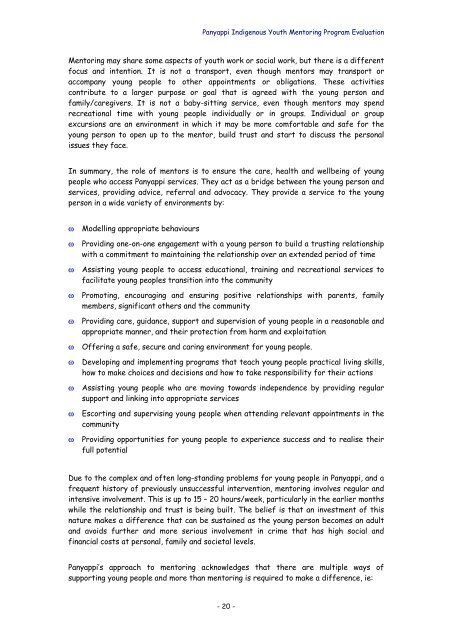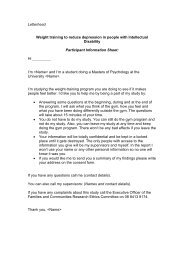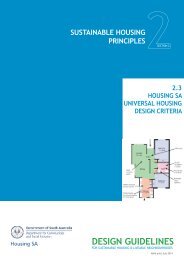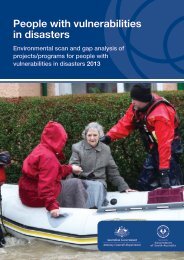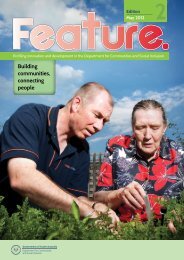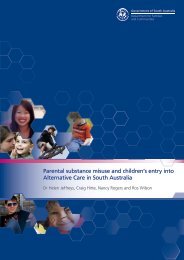Panyappi Indigenous Youth Mentoring Program Evaluation
Panyappi Indigenous Youth Mentoring Program Evaluation
Panyappi Indigenous Youth Mentoring Program Evaluation
Create successful ePaper yourself
Turn your PDF publications into a flip-book with our unique Google optimized e-Paper software.
<strong>Panyappi</strong> <strong>Indigenous</strong> <strong>Youth</strong> <strong>Mentoring</strong> <strong>Program</strong> <strong>Evaluation</strong><br />
<strong>Mentoring</strong> may share some aspects of youth work or social work, but there is a different<br />
focus and intention. It is not a transport, even though mentors may transport or<br />
accompany young people to other appointments or obligations. These activities<br />
contribute to a larger purpose or goal that is agreed with the young person and<br />
family/caregivers. It is not a baby-sitting service, even though mentors may spend<br />
recreational time with young people individually or in groups. Individual or group<br />
excursions are an environment in which it may be more comfortable and safe for the<br />
young person to open up to the mentor, build trust and start to discuss the personal<br />
issues they face.<br />
In summary, the role of mentors is to ensure the care, health and wellbeing of young<br />
people who access <strong>Panyappi</strong> services. They act as a bridge between the young person and<br />
services, providing advice, referral and advocacy. They provide a service to the young<br />
person in a wide variety of environments by:<br />
ω<br />
ω<br />
ω<br />
ω<br />
ω<br />
ω<br />
ω<br />
ω<br />
ω<br />
ω<br />
Modelling appropriate behaviours<br />
Providing one-on-one engagement with a young person to build a trusting relationship<br />
with a commitment to maintaining the relationship over an extended period of time<br />
Assisting young people to access educational, training and recreational services to<br />
facilitate young peoples transition into the community<br />
Promoting, encouraging and ensuring positive relationships with parents, family<br />
members, significant others and the community<br />
Providing care, guidance, support and supervision of young people in a reasonable and<br />
appropriate manner, and their protection from harm and exploitation<br />
Offering a safe, secure and caring environment for young people.<br />
Developing and implementing programs that teach young people practical living skills,<br />
how to make choices and decisions and how to take responsibility for their actions<br />
Assisting young people who are moving towards independence by providing regular<br />
support and linking into appropriate services<br />
Escorting and supervising young people when attending relevant appointments in the<br />
community<br />
Providing opportunities for young people to experience success and to realise their<br />
full potential<br />
Due to the complex and often long-standing problems for young people in <strong>Panyappi</strong>, and a<br />
frequent history of previously unsuccessful intervention, mentoring involves regular and<br />
intensive involvement. This is up to 15 – 20 hours/week, particularly in the earlier months<br />
while the relationship and trust is being built. The belief is that an investment of this<br />
nature makes a difference that can be sustained as the young person becomes an adult<br />
and avoids further and more serious involvement in crime that has high social and<br />
financial costs at personal, family and societal levels.<br />
<strong>Panyappi</strong>’s approach to mentoring acknowledges that there are multiple ways of<br />
supporting young people and more than mentoring is required to make a difference, ie:<br />
- 20 -


